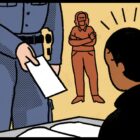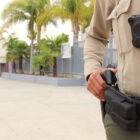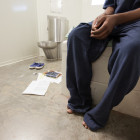
An Illinois school district’s reliance on police to ticket students is discriminatory, civil rights complaint says
|
Illinois law bans schools from fining students. But police routinely issue tickets to children for minor misbehavior at school, burdening families with financial penalties. Two national civil rights groups accused Illinois’ third-largest school district of relying on police to handle school discipline, unlawfully targeting Black students with tickets, arrests and other discipline. In a 25-page complaint against Rockford Public Schools, filed with the U.S. Department of Education’s Office for Civil Rights, the National Center for Youth Law and the MacArthur Justice Center said that Rockford police officers have been “addressing minor behaviors that should be handled as an educational matter by parents, teachers, and school leaders — and not as a law enforcement matter by police officers.” The complaint adds: “Black students bear the brunt of this harm.”








